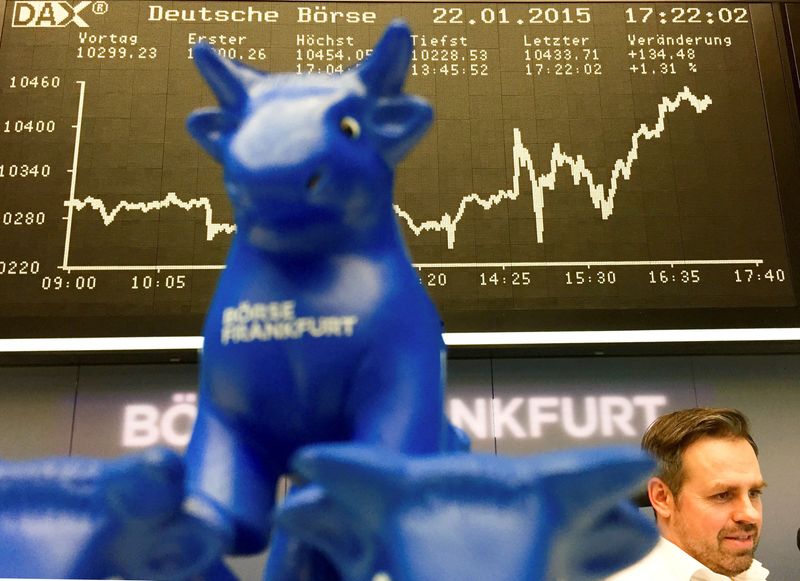By Peter Nurse
Investing.com - European stock markets edged higher Friday, helped by improved U.K. consumer confidence in the wake of the country’s Autumn Statement, but gains are likely to be tentative as the regional economic outlook remains bleak.
At 03:30 ET (08:30 GMT), the DAX index in Germany traded 0.5% higher, CAC 40 in France rose 0.5% and the FTSE 100 in the U.K. climbed 0.2%.
There was some good news for investors to cling to Friday, with the GfK consumer confidence for the U.K. climbing to -44 in November, the market research firm GfK said early Friday.
This represents a rise from -47 in October, and was considerably better than the expected -52, even as it stayed close to record-low levels.
Additionally, U.K. retail sales rose 0.6% on the month in October, a better result than expected, although this still represents a fall of 6.1% on the year, with British consumers struggling to cope with soaring inflation and raising interest rates.
This came just a few hours after U.K. Chancellor Jeremy Hunt confirmed in his Autumn Statement that the country was in recession, while announcing £55 billion (£1=$1.1904) worth of tax rises and spending cuts as Britons face a record hit to living standards.
Elsewhere, European Central Bank President Christine Lagarde is scheduled to speak at the European Banking Congress in Frankfurt, and her speech is sure to be dissected for clues as to how high interest rates will climb in the Eurozone.
The European banking sector will be looking to the European Central Bank as it is set to announce later Friday how much banks plan to repay of the €2.1T (€1=$1.0366) loans they have taken under its targeted longer-term refinancing operations.
In corporate news, Renault (EPA:RENA) stock rose 0.7% after ratings agency Moody's changed the outlook on the French carmaker to ‘stable’ from ‘negative’ to reflect prospects of improved profitability from its strategic plan.
Tesco (LON:TSCO) stock rose 1.2% after Britain's biggest retailer announced it is offering its staff advances on their pay to help them navigate a worsening cost-of-living crisis.
Oil prices edged higher Friday, but are still heading for a steep weekly decline as a growing number of COVID cases in China threatened demand growth at the world’s largest crude importer.
China reported over 25,000 new COVID-19 infections on Nov. 17, the National Health Commission said on Friday, which is the highest level since April and is approaching the record high.
Additionally, fears are growing that the spread won’t ease soon as cases have spread across the populous Chinese regions of Guangzhou and Chongqing, potentially leading to new severe mobility restrictions and the crimping of economic activity.
By 03:30 ET, U.S. crude futures traded 0.5% higher at $82.03 a barrel, down over 7% week-to-date, while the Brent contract rose 0.2% to $89.96, around 6% lower so far this week.
Additionally, gold futures rose 0.1% to $1,765.50/oz, while EUR/USD traded 0.1% lower at 1.0350.
